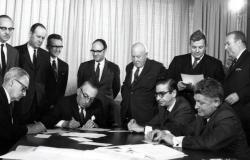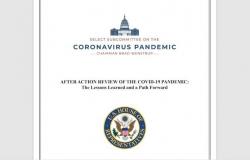Iranian President Massoud Pezeshkian has expressed doubts about the relevance of a new law toughening sanctions against unveiled women, a text which is causing controversy two years after the death of Mahsa Amini.
• Also read: Reformer Pezeshkian wins presidential election in Iran
• Also read: Iran: Imprisoned Nobel Peace Prize winner urges to “criminalize gender apartheid”
• Also read: Wearing the veil in Iran: “widespread surveillance” of women and drivers
Since the Islamic Revolution of 1979, women in Iran have been required to cover their hair in public places.
But more and more of them appear without veils in the street, since the protest movement triggered by the death in detention in September 2022 of Mahsa Amini, a 22-year-old Iranian Kurd, arrested for violating the strict dress code in force. in the country.
A new law approved in Parliament provides for tougher sanctions against offenders.
However, the text must obtain the signature of the Iranian president on December 13 to formally enter into force.
“As the person responsible for promulgating this law, I have many reservations about it,” said Massoud Pezeshkian, during an interview Monday evening on state television.
The law entitled “hijab and chastity” provides for fines – which can represent up to 20 months of average salary in the event of a repeat offense – for women who are poorly or not veiled in public or on social networks, according to the broad outlines published in the press.
The text has not been officially published.
Fines must be paid within ten days, failing which offenders may be subject to a ban on leaving the country and deprived of certain public services, including the issuance of a driving license.
Because of this law, “we risk ruining a lot of things” in society, said the Iranian president, who took office in July and manages the government in Iran.
“We must not do anything that could displease the nation,” insisted Mr. Pezeshkian.
Mr. Pezeshkian had promised during his campaign to remove the moral police, a unit responsible for monitoring the wearing of the veil, from the streets.
At the origin of the arrest of Mahsa Amini, this unit has disappeared from the streets since the start of the demonstrations in September 2022, but has never been formally abolished by the authorities.
Mr. Pezeshkian, an MP at the time, strongly criticized the police for the death of Mahsa Amini.






